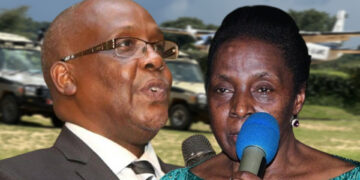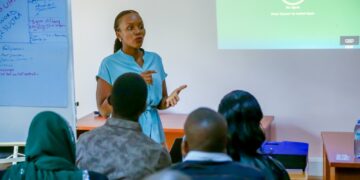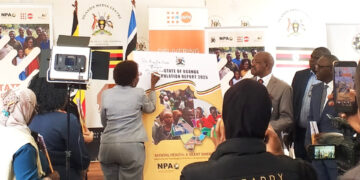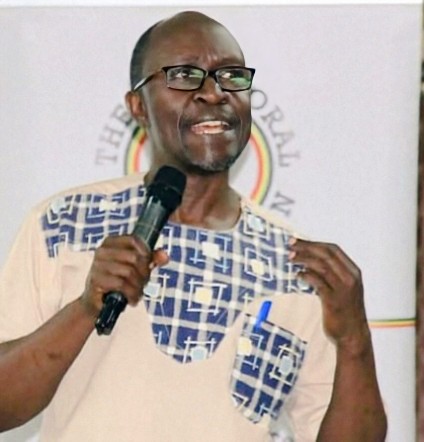By Ritah Atukwatse,
Kampala,
Uganda Radio Network’s Guma Samuel has called on journalists to recommit themselves to ethical practice, professional standards, and the true purpose of journalism, warning against the growing trend of untrained individuals taking up roles as content creators in the digital space.
While addressing a gathering of media practitioners at Hotel Africana in Kampala, Guma stressed that journalism must remain rooted in truth, responsibility, and public service. “Media exists to serve society. Good media must be independent, reliable, responsible, and grounded in knowledge and societal values. It should never discriminate,” he said.

Comparing traditional and new media, Guma expressed concern over the rise of unverified reporting and the erosion of journalistic standards online. “In the new media era, everyone is trying to become a journalist — and we are losing it all,” he warned. “Prepare before you speak. Being a journalist is not a casual role. It requires preparation, research, and purpose.”
He also outlined the core qualities of a compelling news story, urging journalists to focus on faces, focus, voices, drama, interest, and facts. These elements, he said, form the foundation of impactful storytelling that resonates with audiences and serves the public good.
Journalism is not an easy profession. “It is a demanding career that needs expertise, passion,focus, talent, and skill,” he said. “You can’t fake it — journalism calls for full dedication.”
He reminded journalists to adhere to principles such as standard professional conduct, fairness, libel laws, taste, and managing conflicts of interest. He cautioned against compromising personal integrity for the sake of a story.
Additionally on personal safety and authenticity, Guma reminded the audience: “There is no story worth your life. When you are dead, you don’t write a story. Take care of your life first. Do not pretend what you are not.”
His remarks come at a time when journalists are facing increasing pressure from the fourth coming elections, digital competition, political tensions, and economic hardship — all of which can threaten the quality and safety of their work.








































